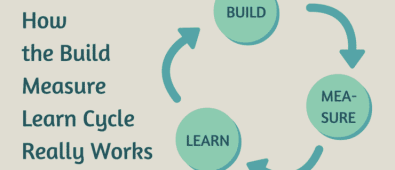Note the phrase “programming assessment” to an engineer, and the reaction might be… less than excited. For applicants, coding test for hiring and interrogation can seem arbitrary, dishonest, and a waste of time. For organizations, programming assessments can seem equally unfair, unexpected, and a waste of time—although for unique explanations.
If you’re unsure of programming assessments, we don’t condemn you: there are a lot of methods for them to go incorrect. However, we’ve seen many instances of programming assessments from top technical organizations that show that when done right, they can decrease bias, enhance diversity, and leave applicants with a much better image than the intermediate mobile screen. Also, utilizing some type of pre-screen or technical screen skills test is one of the best methods to scale your technical recruiting in a hyper-competitive market.
In this blog post, we’ll tell you how to develop a programming assessment that works. But first, let’s take a glance at why programming assessments can so often fail for applicants and organizations.
How do programming assessments go wrong for applicants?
When questioning almost all of the biggest and most competitive technical organizations today, the first stage is to take a programming assessment. However, you just have to glance at platforms like LeetCode, Reddit, and Glassdoor to hunt engineers motivating their equivalents to restrict programming assessments from certain organizations or certain online programming assessment platforms. That’s how simple it is for programming assessments to leave applicants with a horrible impression of your organization.
When these tests go wrong, it’s generally for one or more of the subsequent explanations:
- The online programming assessment platform was difficult to use. A glitchy platform, or an incorporated development environment (IDE) that’s awkward or lacking the desired characteristics, implies that engineers will be required to spend time attempting to figure out how to take the assessment instead of staying concentrated on the questions. As an outcome, applicants can feel like they weren’t offered a fair shot during the test.
- The questions were not adequately written. From the arrangement of questions to the terminology and content itself, making interview questions is an art. Questions should be made in complexity and not need too much context switching for the applicant. When experts aren’t involved to make these questions, the writing might suffer from a lack of transparency or use of culturally-specific terminology and instances. This can be confusing and alienating, specifically for people from distinct backgrounds and with diverse levels of English language capability.
- The assessment was too long. Some programming assessments are unnecessarily lengthy. Interviewing is already a stressful and lengthy procedure. If applicants have an existing job and family responsibilities and they have to pass what feels like a university assessment just to talk to someone at the organization, that’s a lot to question.
How do programming assessments go wrong for organizations?
Programming assessments aren’t only difficult for applicants, they can also cause problems for technology companies when not executed thoughtfully. Here are a number of the top objections:
- Questions get revealed. It’s highly common at the time of coding test for hiring, questions get revealed on platforms like Blind and LeetCode. It’s difficult or unattainable to understand if the applicant has observed the question somewhere else already.
- Assessments are time-consuming for engineers to handle. To hold a constant stream of questions and interpretations (and replace questions when they’re inevitably revealed), engineers are required to handle distinct versions of the programming assessment and confirm these versions are appropriate and comparative. This needs a huge amount of work and takes time away from product evolution.
- Applicants can pass even if they don’t have important required skills. A good programming assessment should assess the basic skills that someone requires for the job; the rest of the interview can be spent exploring deeper into these skills and comprehending what it would be like to work with the person. However, too often programming assessments are a loud filter as the assessment questions are not customized to the skills required for the position. So, the technical team ends up expending time at the onsite stage with applicants who aren’t skilled enough.
- There’s no guarantee. Relying on the online programming assessment platform that is utilized, there may be no method to check that the test-takers’ individuality matches the applicant, or that they haven’t copied their solutions.
Doing skills assessment, the right way
Every programming platform should expend a lot of time thinking about the methods of coding test for hiring that can go wrong as we’ve seen evidence that there are huge advantages for applicants and organizations if we can get programming assessments right. Technical teams can scale quickly and expend less time interviewing unqualified applicants, while applicants can be evaluated based on their knowledge, not the keywords on their CVs.
Here are two approaches that teams can execute to feel convinced that they’re getting these advantages—and to make sure, applicants never deny programming assessments from your company!
Skills assessment frameworks
A test is only as useful as its questions. If the questions are not adequately written or not linked to the job role, the applicant is sorrowful. If they’re difficult to develop, simply revealed, or not calculating the correct skills, the organization suffers.
Today, top tech companies are turning to skills assessment frameworks to overwhelm these issues. Serving as the “blueprints” for a programming test, a skills assessment framework defines the particular kinds of questions required to measure an applicant’s readiness for a given position. Frameworks are generally created and maintained by tech interviews and test-takers that employ IO psychologists and test design engineers. This is a team of professionals whose job is to design, verify, and implement job-specific frameworks and develop hundreds or even thousands of question variations to bypass plagiarism.
Tech screen interviews
One of the typical objections of applicants during the coding test for hiring is that assessments are impartial and when they have questions, there’s no one to ask for assistance. On the other hand, technical teams are under stress to expend more time creating and less time recruiting, and human bias is a real issue in interviews.



